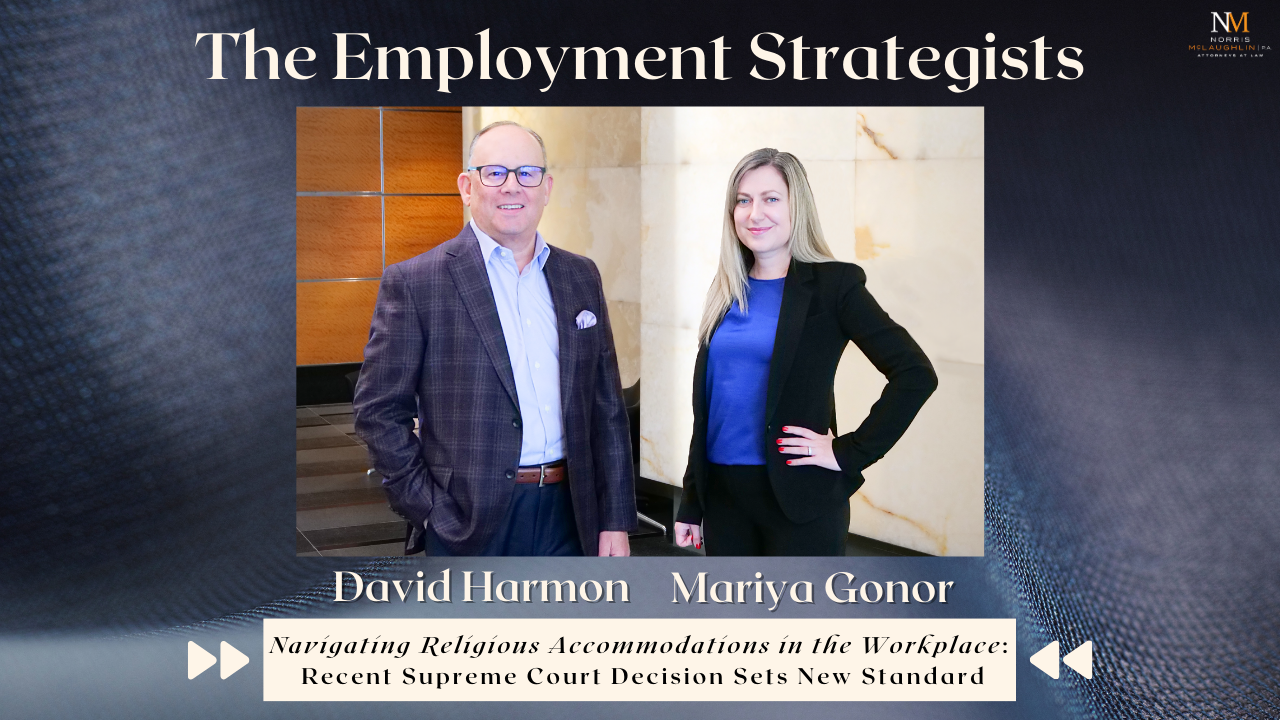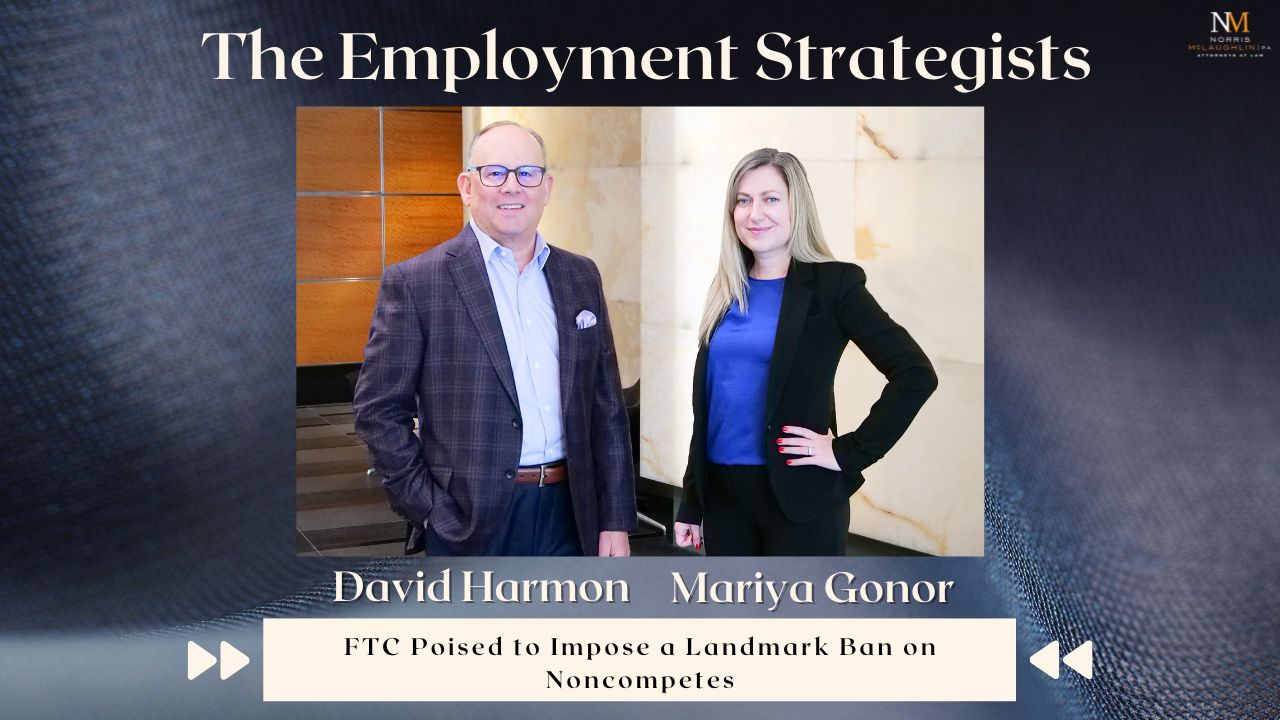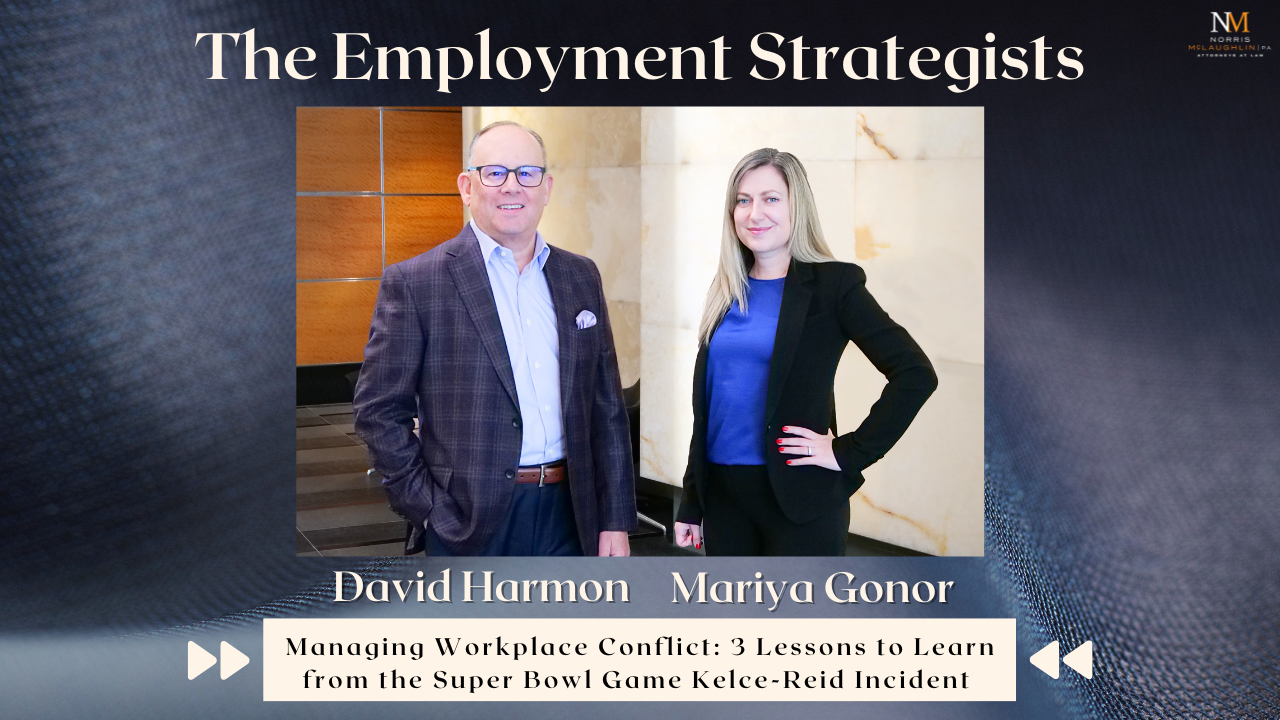Navigating Religious Accommodations in the Workplace: Recent Supreme Court Decision Sets New Standard

Religious accommodations in the workplace have long been a topic of concern for both employers and employees. Questions arise about the extent to which accommodations are required, especially when religious beliefs clash with work schedules or practices. Can an employer refuse to accommodate an employee who cannot work on their religious Sabbath? What about situations where an employee needs multiple consecutive days off to observe religious holidays?
The U.S. Supreme Court recently addressed these questions in a landmark decision that clarifies the standards for religious accommodations in the workplace. On June 29, 2023, the Court issued its ruling in the case of Groff v. DeJoy, providing important insights into the obligations of employers when it comes to accommodating employees' religious practices. That case involved a postal worker whose religious beliefs prevented him from working on Sundays. As a result, other employees were required to pick up those shifts. The Plaintiff was disciplined for failing to come in on Sundays and ultimately resigned and sued the employer. The trial court and the U.S. Court of Appeals for the Third Circuit sided with the employer, finding that exempting one employee from Sunday work disrupted both workplace and workflow, and diminished employee morale.
Historically, religious accommodations were expected, as long as they imposed only minor inconveniences on employers. However, the Supreme Court's recent decision in Groff v. DeJoy has raised the bar. The Court held that employers must provide accommodations unless granting them would place a substantial burden on the employer's operations. In simpler terms, employers must now show that making the accommodation would significantly increase their costs related to running their business.
This decision marks a departure from the older interpretation established in the 1977 case of Trans World Airlines, Inc. v. Hardison. That case was interpreted to permit employers to deny accommodations if they imposed costs slightly higher than trivial. Groff v. DeJoy effectively rejects this approach, replacing it with a more stringent standard that requires employers to prove that accommodating the employee's religious practices would result in significant financial strain.
An important aspect clarified by the Court is that an accommodation’s impact on coworkers matters only if it affects the employer's business operations. For example, simple coworker discomfort or opposition to religious accommodations is not sufficient grounds for an undue hardship claim. The Court emphasized that employers have a responsibility to reasonably accommodate religious practices and must assess the overall reasonableness of a specific accommodation, rather than merely evaluating its feasibility.
Unfortunately, the Court did not answer the factual question presented and sent the case back to the lower court to apply the new undue hardship standard. The Court recognized that past considerations might have overlooked potential accommodations that could have been explored, such as providing incentive pay to offset costs or coordinating with nearby post office stations.
The ruling raises the bar for employers, subjecting them to a more rigorous assessment of undue hardship.
Navigating religious accommodations and the potential legal implications can be complex. Employers seeking to manage the risks associated with religious accommodation requests, as well as those facing Title VII religious accommodation actions, should seek guidance from legal counsel. As the landscape evolves, having the right support can ensure compliance with the new standard while respecting employees' religious rights.
For inquiries or further information about religious accommodations in the workplace, please don't hesitate to contact The Employment Strategists: David Harmon at dtharmon@norris-law.com and Mariya Gonor at mgonor@norris-law.com.




